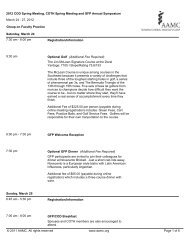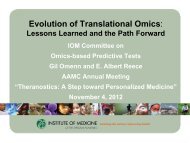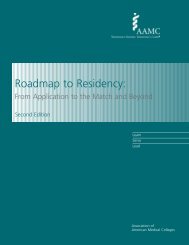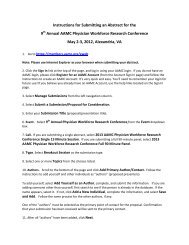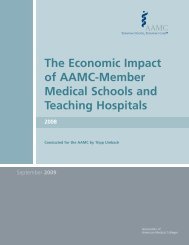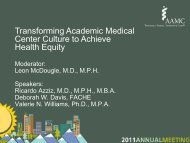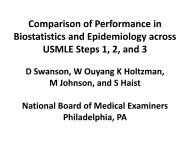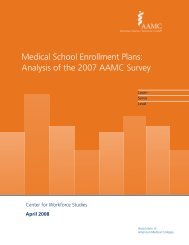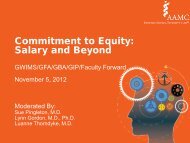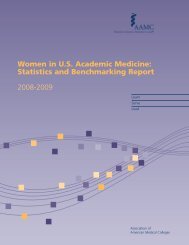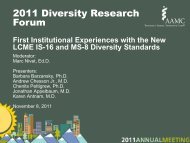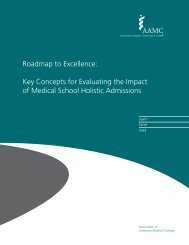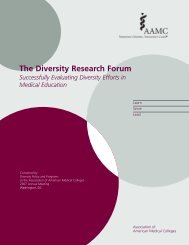Culture and the Courage to Change - Member Profile - AAMC
Culture and the Courage to Change - Member Profile - AAMC
Culture and the Courage to Change - Member Profile - AAMC
You also want an ePaper? Increase the reach of your titles
YUMPU automatically turns print PDFs into web optimized ePapers that Google loves.
<strong>Culture</strong> <strong>and</strong> <strong>the</strong> <strong>Courage</strong> <strong>to</strong> <strong>Change</strong>examination presents <strong>the</strong> opportunity for us <strong>to</strong> change <strong>the</strong> culture ofour organization <strong>to</strong> improve performance, resolve conflicts, <strong>and</strong>, mostimportantly, help all of us feel genuinely fulfilled by our work.“While culture is an extraordinarily powerful forcefor a group or organization, it is so pervasive <strong>and</strong>interwoven with every activity that we may not giveit much conscious attention.”If culture matters so much, just what is our current culture in academicmedicine? The answer cannot be found simply by reciting our vision<strong>and</strong> mission statements. To underst<strong>and</strong> culture, we have <strong>to</strong> think aboutunderlying values, assumptions, norms, <strong>and</strong> rituals that are lessapparent. In his provocative book, The <strong>Culture</strong> Code, author ClotaireRapaille describes how a single code word or phrase often can capture<strong>the</strong> complex values, assumptions, <strong>and</strong> behaviors that make up a culture.As I was thinking about this <strong>to</strong>pic, I asked a number of colleagues which“code words” came <strong>to</strong> mind when <strong>the</strong>y reflected on <strong>the</strong> culture ofacademic medicine. Think about it yourself, <strong>and</strong> see if you agree withany of <strong>the</strong> feedback I received. What word would you choose <strong>to</strong>describe our prevailing culture in academic medicine? The descrip<strong>to</strong>rs Iheard included words like individualistic, au<strong>to</strong>nomous, scholarly, expertcentered,competitive, focused, high-achieving, <strong>and</strong> hierarchical.If those are <strong>the</strong> words that describe us, we could argue that <strong>the</strong>se culturecodes have served us well. There certainly is nothing wrong with generationsof medical students, residents, graduate students, <strong>and</strong> facultymembers aspiring <strong>to</strong> become scholarly experts. The competition ofclimbing <strong>the</strong> hierarchy of promotion <strong>and</strong> tenure may have helped pushgenerations of faculty members <strong>to</strong> great achievements. And certainly,<strong>the</strong> intense dedication of an award-winning lecturer, an internationallyrecognized clinician, or a Nobel-quality scientist is a wonder <strong>to</strong> behold.5Association of American Medical Colleges



